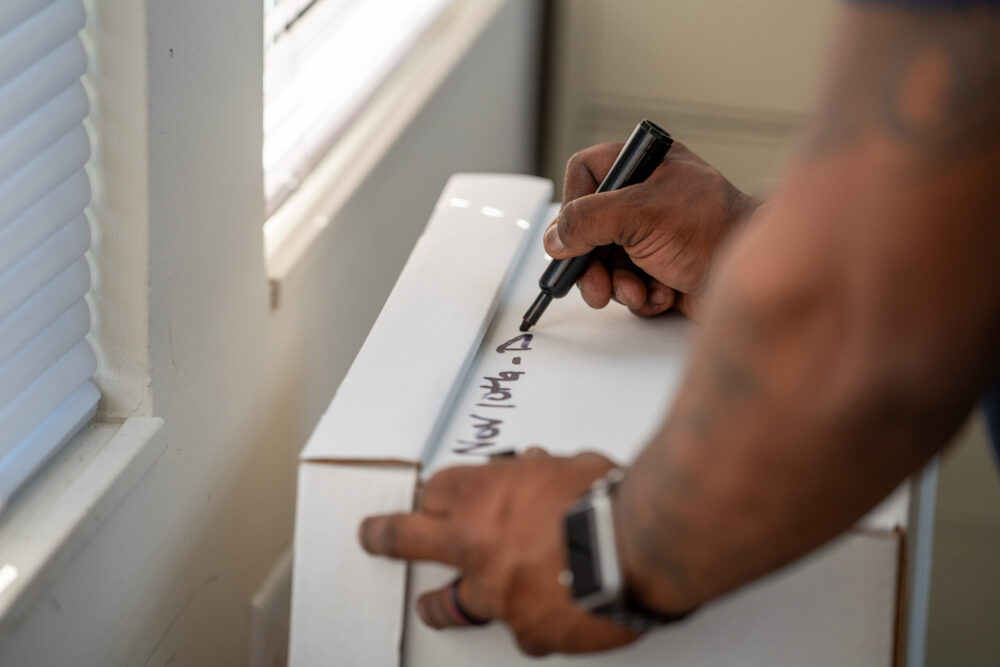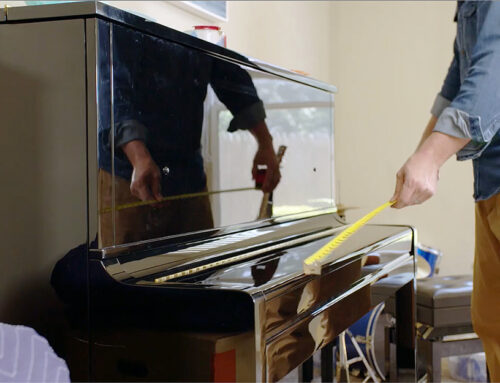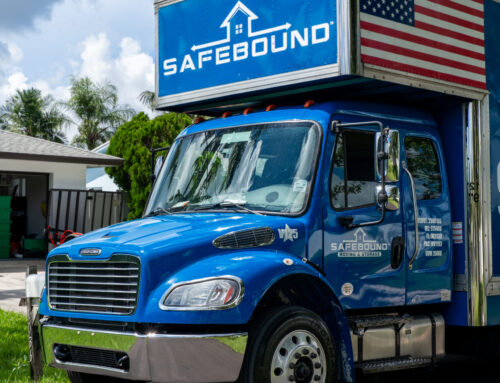At Safebound Moving & Storage, we understand that moving to a new home can be an exciting adventure, but it often comes with its fair share of stress and challenges. From packing up your belongings to coordinating with moving companies, there’s a lot to think about and plan for. That’s why creating a moving timeline is essential for a smooth and successful move.
Having a moving timeline helps you stay organized and ensures that you don’t forget any important tasks along the way. By breaking down the moving process into manageable steps and spreading them out over several weeks, you can reduce stress and make the transition to your new home much easier.
In this blog post, we’ll provide you with a comprehensive moving timeline to help you plan your move effectively. Whether you’re moving across town or across the country, these tips will help you stay on track and ensure that you’re fully prepared for moving day.
Table of Contents
- 8-12 Weeks Before Moving Day
- 8 Weeks Before Moving Day
- 6 Weeks Before Moving Day
- 4 Weeks Before Moving Day
- Moving Day: Tips for a Smooth Transition
8-12 Weeks Before Moving Day
-
- Research Moving Companies: Begin researching moving companies in your area. Get quotes, read reviews, and compare services to find the best fit for your needs.
- Gather Packing Supplies: Start passively collecting packing supplies such as boxes, tape, bubble wrap, and markers. You can purchase these supplies from moving companies or local stores, or even ask friends and family if they have any extras.
- Start to Declutter Your Home: Take this time to go through your belongings and decide what you want to keep, donate, or throw away. This will not only lighten your load but also save you time and money on moving day. No pressure to get this done, but it’s great to get a head start.
- Create a Moving Binder: Keep all your moving-related documents, such as quotes, receipts, and inventory lists, in one place. This will help you stay organized throughout the moving process.
- Notify Important Parties: Inform your landlord, homeowners association, and any other relevant parties about your upcoming move. This will ensure a smooth transition and help you avoid any last-minute complications.
- Create a Budget: Moving can be expensive, so it’s important to create a budget to track your expenses. Include costs for packing supplies, moving services, travel, and any other related expenses. Having a clear budget will help you stay on track financially.
8 Weeks Before Moving Day
As the two-month mark approaches, it’s time to kick your moving preparations into high gear. Here are the key tasks to focus on at this stage:
- Choose A Moving Company: Get recommendations from friends, family, or real estate agents, and research online reviews. Contact several companies to compare quotes and services. Booking early ensures you get the date and services you want.
- Start Decluttering: Go through your belongings and decide what to keep, donate, or sell. Moving is a great opportunity to get rid of items you no longer need or use. Consider hosting a garage sale or donating items to charity.
- Begin Packing Non-Essentials: Start packing items that you won’t need in the weeks leading up to your move, such as off-season clothing, books, and decorations. Label each box with its contents and the room it belongs in to make unpacking easier.
- Notify Service Providers: Inform your utilities, landscapers, and other service providers about your move. Schedule the disconnection of services at your current home and the connection of services at your new home. This includes electricity, water, gas, internet, cable, and any other services you use.
- Organize Important Documents: Gather important documents such as medical records, school records, and financial documents. Keep them in a safe place where they won’t get lost during the move.
6 Weeks Before Moving Day
With a little more than a month to go before your move, it’s time to start getting into the nitty-gritty of your moving preparations. Here’s what you should focus on at this stage:
- Finalize Your Moving Date: Confirm the exact date of your move with your chosen moving company. Make sure the date works for you and that you have enough time to complete all necessary preparations.
- Purchase Packing Supplies: Stock up on all the packing supplies you’ll need, including boxes, tape, bubble wrap, and markers. Having everything on hand will make the packing process much smoother. This only applies if you aren’t having your moving company pack for you.
- Continue Decluttering: Continue to go through your belongings and decide what to keep, donate, or sell. The less you have to move, the easier and cheaper your move will be.
- Start Packing More Heavily: Begin packing up more of your belongings, focusing on items you use less frequently. Make sure to label each box with its contents and the room it belongs in.
- Arrange for Storage (If Necessary): If you need to store some of your belongings before, during, or after your move, now is the time to arrange for storage space.
- Update Your Address: Start updating your address with important parties such as banks, credit card companies, insurance providers, and the post office. This will ensure that your mail is forwarded to your new address.
- Plan Your Travel: If you’re moving a long distance, make travel arrangements for yourself and your family. This may include booking flights, hotels, or rental cars.
4 Weeks Before Moving Day
With just a month left until your move, it’s time to start finalizing your preparations and ensuring that everything is on track. Here’s what you should focus on at this stage:
- Confirm Moving Details: Contact your moving company to confirm the details of your move, including the moving date, time, and any specific requirements you may have.
- Complete Change of Address Notifications: Notify the post office, banks, credit card companies, insurance providers, and any other important parties of your change of address. This will ensure that your mail is forwarded to your new address.
- Finish Decluttering and Packing: Continue to declutter your home and pack up your belongings. Focus on packing up items that you use infrequently, leaving essential items until closer to moving day.
- Arrange for Child and Pet Care on Moving Day: If you have children or pets, arrange for someone to take care of them on moving day. This will allow you to focus on the move without worrying about their safety and well-being.
- Schedule Services for Your New Home: Contact utility providers in your new area to schedule the connection of services such as electricity, water, gas, internet, and cable.
- Plan for Cleaning: If you’re responsible for cleaning your current home before moving out, start planning for it now. Consider hiring a professional cleaning service to make the process easier.
- Dispose of Hazardous Materials: Properly dispose of any hazardous materials you may have, such as paint, chemicals, or batteries. Check with your local waste disposal facility for guidance on how to dispose of these items safely.
Moving Day: Tips for a Smooth Transition
Moving day has arrived! While it can be a hectic time, a little preparation and organization can go a long way in ensuring a smooth transition to your new home. Now that your moving timeline is almost over, here are some tips to help you navigate moving day with ease:
- Stay Organized: Keep all your important documents, keys, and contact information for the moving company in one place. This will help you stay organized and ensure that nothing important gets left behind.
- Communicate with Your Moving Team: Keep an open line of communication with your moving team throughout the day. Provide them with any necessary instructions and let them know of any fragile or valuable items that require special care.
- Pack a First-Night Box: Pack a box with essential items that you’ll need for your first night in your new home. This can include toiletries, medications, a change of clothes, bedding, and important documents.
- Supervise the Loading Process: As your belongings are being loaded onto the truck, supervise the process to ensure that everything is handled with care. Make note of any damage to your belongings and communicate this to the moving team.
- Double-Check Your Home: Before leaving your old home, double-check that all windows and doors are locked, and that no items have been left behind.
- Say Goodbye to Your Neighbors: If you have good relationships with your neighbors, take a moment to say goodbye. It’s a nice gesture that can leave a positive impression.
- Arrive Early at Your New Home: If possible, arrive at your new home before the moving truck to ensure that everything is ready for the unloading process. This includes making sure that utilities are connected and that the path to your home is clear for the moving truck.
- Stay Calm and Flexible: Despite your best efforts, moving day can sometimes be unpredictable. Stay calm, and be prepared to be flexible if things don’t go exactly as planned.
This moving timeline is essential for a smooth and successful move. By breaking down the moving process into manageable steps and spreading them out over several weeks, you can reduce stress and ensure that you’re fully prepared for moving day.
Key points to remember include:
- Starting Early: Begin your preparations 8-12 weeks before moving day to allow ample time for research, decluttering, and packing.
- Staying Organized: Keep all your moving-related documents in one place, and label your boxes to make unpacking easier.
- Communicating Effectively: Stay in touch with your moving company and communicate any special requirements or concerns you may have.
- Being Flexible: Despite your best efforts, moving day can sometimes be unpredictable. Stay calm and be prepared to adapt to changing circumstances.
We encourage you to use the provided moving timeline to plan your move effectively. Whether you’re moving across town or across the country, these tips will help you stay on track and ensure that you’re fully prepared for moving day.
Thank you for reading, and we wish you a smooth and successful move to your new home!





